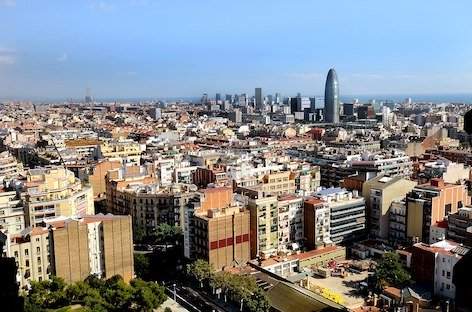Published
Tue, May 5, 2020, 17:08
- The country's three-phase reopening will start with small "cultural events" next week.

Last updated: 19:09 CEST, Tuesday, May 5th
Spain will allow some "cultural events" to take place starting this month.
As part of the country's gradual easing of restrictions, beginning May 11th, the outdoor terraces of restaurants and bars will be allowed to open at 50 percent capacity, The Local ES reports. Events will also be allowed to return, according to IQ magazine, with no more than 30 people for indoor events and 200 for open-air events. They will require social-distancing guidelines, like spaced-out assigned seating, to be implemented.
The next phase will tentatively come on May 26th, though it is subject to change. Cinemas, theatres, art galleries and museums can reopen at partial capacity, while the threshold for events rises to 50 people indoors and 400 outdoor, still with assigned seating. Finally, planned for June 10th, the capacity for indoor events rises to 80, while outdoor functions can host up to 800 people in seats.
While the news sounds positive on the surface, some promoters have concerns about the viability of operating under such extreme, tentative restrictions and the logistics of planning for the phases while details and requirements are still being ironed out.
Brunch cofounder and director Loïc Le Joliff told Resident Advisor the lack of specific details and concrete dates makes planning for these phases "complicated" and "challenging." "Of course promoters in Spain last week were very happy. That was the first piece of good news—we saw some light at the end of the tunnel," said Le Joliff. "But then we checked the details, and we realised that there's no details yet. And we realised there's a lot of contradiction."
Le Joliff pointed out how households and groups of ten people are allowed to hang out together on bar terraces, though if those same people were to then go to an open-air, larger event, they would have to all sit separately, spaced-out in assigned seating.
"It makes no sense for us to operate for only one-third capacity," Eloisa Blitzer of Barcelona-based queer party MARICAS told RA. "Government gives no aid to collectives like us, which is very sad... My feelings for the government plan are conflicted, since from one side I understand these are the measures that must be taken, for health reasons, but I feel they are really not taking into account that for promoters or venues to open for [30 percent] capacity will only mean they are losing money, and again Spain is giving no aid to this scene, since clubbing is not considered culture here." [On Tuesday afternoon, May 5th, the Spanish government announced it is providing €76.4 million in grants to the cultural sector, including €38 million specifically for the performing arts and music.]
Purificación Salgado of Barcelona club LAUT echoed that sentiment to RA. "With a capacity restriction (one-third maximum), we don't have the plan to hold events under these conditions," Salgado said. "So at this point for us, it is not possible to operate within the strict guidelines."
"The electronic music industry's attitude is every single thing that we are able to do, we are going to do it," Le Joliff of Brunch said. "We'll make it work... Of course, if you don't change your model, it doesn't make sense at one-third capacity. We'll have to readapt." For that, he says promoters will follow the unfolding lockdown phases closely. "We don't know what's going to be the new normal. Should we work on the model [for a phase] that's gonna last two weeks or should we wait," he said. "That's our approach, we're going to wait a couple months, and see what's going on."
Still, Le Joliff is confident ravers will also adjust. "The young people they really want to party, they're not scared. The moment we have something, it will sell out."
Spain is under one of the strictest lockdowns in Europe. For more on how the pandemic is affecting nightlife and dance music globally, check out our ongoing news coverage.
This post has been updated to include new information and promoter response.
Photo credit: Frank Müller